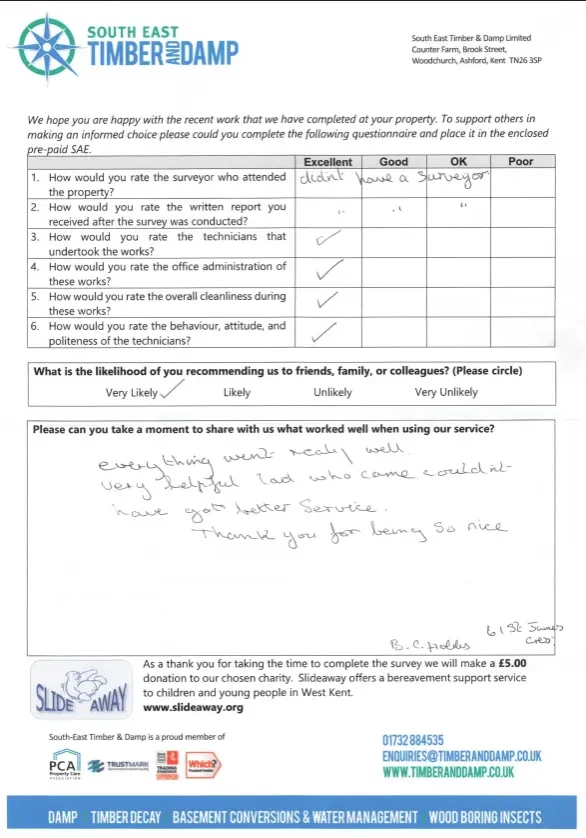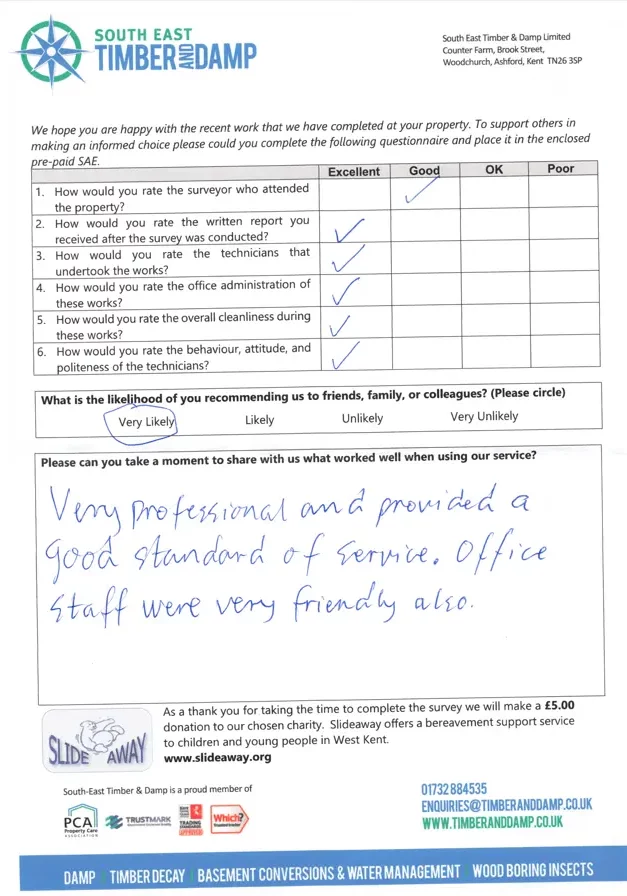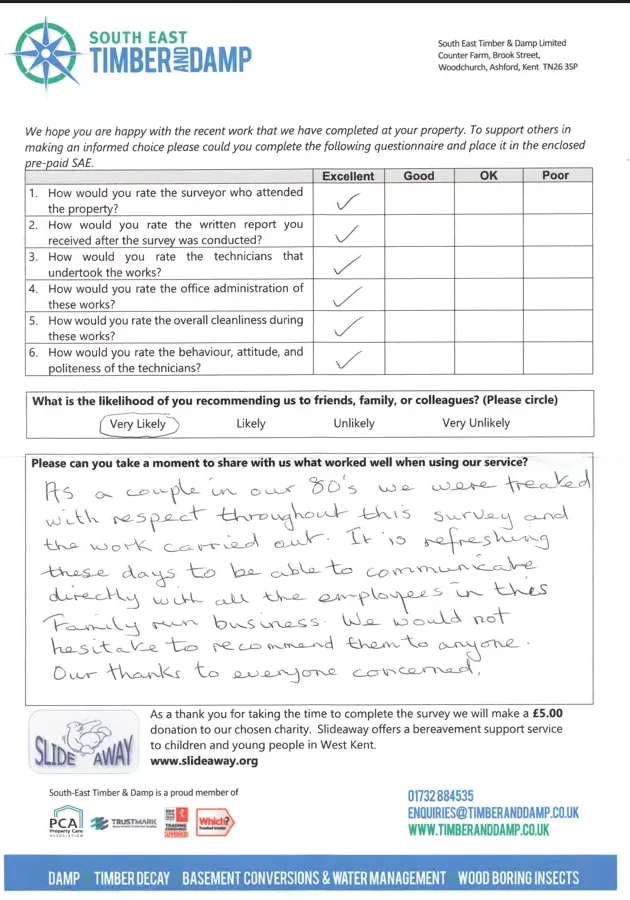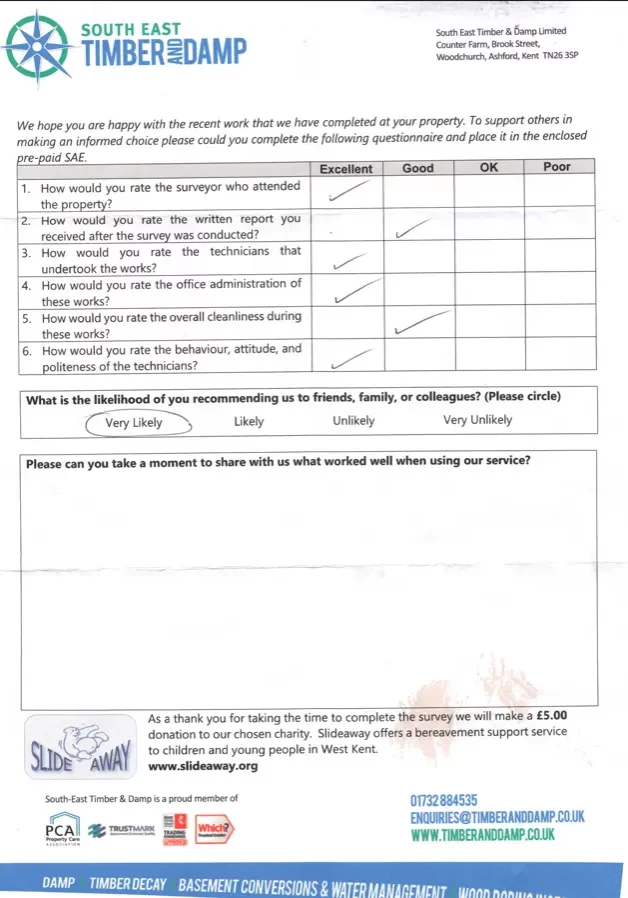Book your survey today!

What is a Damp Proof Membrane?
A damp proof membrane or DPM refers to an impermeable barrier within the structure of a building which is in place to prevent moisture transmission.
A damp-proof membrane prevents dampness from entering a building’s interior. When used in conjunction with an injected damp-proof course, it effectively seals the property from water and provides the most comprehensive and failsafe protection from dampness.
Damp Proof Membrane for Walls
Damp-proof membranes for walls, also known as ‘cavity drain membranes’, are sheets of material (usually made from high-density polyethene) which are applied directly to internal surfaces using specialised fixings.
The side of the membrane facing the damp affected surface is studded, which creates an ‘air gap’, allowing the wall to dry out naturally as air passes through whilst preventing the passage of any moisture.
This system is very flexible as it allows for a choice of internal decorative finishes, such as being directly plastered over or plastered boarded to be left for your own redecoration.
Our Customer Reviews
Faulty damp proof membrane
Rising dampness through concrete flooring can be due to a faulty damp proof membrane, an incorrectly installed one, or a lack of one altogether, which can cause issues on carpets and floor coverings and, if left unaddressed, can cause problems such as tile de-bonding and low-level mould growth. Moisture ingress happens due to concrete being naturally porous.
Modern buildings are now built with damp proof membranes, but older buildings are often without such protection. Problems with damp floors are difficult to diagnose and deal with, and this often means replacement of the entire floor, however, there are options of treatment in which this can be avoided:
- Liquid-applied damp proof membranes are used where an existing DPM has failed or was never installed in the first place. This is applied by simply brushing or rolling the DPM directly onto the floor surface. Additional coats can be applied if necessary, depending on the level of dampness present.
- A physical damp proofing membrane can be applied directly over the original damp concrete base, providing a barrier of protection to floor coverings above.
We apply our expertise to find the source of your damp problems – and to devise long-term solutions.
Professional surveys to identify the problem and specific treatments to tackle it and protect your investment.
Damp Proofing Membrane Case Studies

Need help? Book a survey at a time to suit your schedule
Our mission is to give you the peace of mind you deserve when it comes to waterproofing your house or business. Commission a survey from our team to assess your situation professionally.









